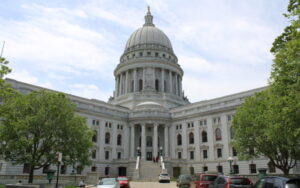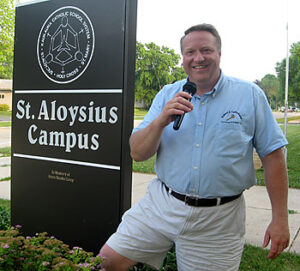The Volunteer State asked a Sixth Circuit panel to restore a 2019 law that prevents out-of-state and unlicensed individuals from conducting online auctions, after a federal judge struck it down as unconstitutional.
KEVIN KOENINGER / January 12, 2023
CINCINNATI (CN) — Seeking to overturn a permanent injunction, Tennessee argued before a federal appeals court Thursday that a law banning online auctions run by people outside the state does not violate the commerce clause.
Public Chapter 471 was signed into law by Tennessee Republican Governor Bill Lee in 2019 as a means of regulating licensing for those who conduct online auctions in the state.
McLemore Auctions Co. LLC, its president Will McLemore, Purple Wave Inc., and the Interstate Auction Assocation sued the members of Tennessee’s Auctioneer Commission shortly after the law was passed, and were granted a temporary injunction the same year.
McLemore and his company are based in Tennessee but use independent contractors located outside the state to conduct online auctions, while Purple Wave is based in Manhattan, Kansas.
The auctioneers claimed PC 471 – which prohibits an individual from conducting an auction without a valid Tennessee license – was unconstitutional because its language regarding licensing included no geographical limitations. U.S. District Judge Eli Richardson agreed.
Last March, Richardson, a Donald Trump appointee, granted the businesses’ motion for a permanent injunction and found the law violates the dormant commerce clause of the U.S. Constitution.
“Wittingly or unwittingly,” he wrote in his opinion, “Tennessee has projected its legislation into other states and directly regulated commerce therein. Perhaps the state could change the result via statutory amendments inserting express, specific geographical limitations, but it cannot change the results by insisting that the statute obviously contains geographical limitations that in fact manifestly are not there.”
In its brief to the Sixth Circuit, the state claims Richardson “abandoned principles of statutory construction” and failed to apply the presumption against extraterritorial application of state law.
“The very subject matter suggests only territorial regulation, and indeed, neither PC 471 (the 2019 amendments) nor any other part of the statutory scheme contains or presents a clear expression or indication that the regulation of auctions, including online auctions, was intended to operate outside Tennessee,” the brief states. (Parentheses in original.)
Richardson erred when he “indulged a presumption against the constitutionality” of the law and determined licensing requirements for commercial transactions on the internet “necessarily equate to extraterritorial regulation,” according to the state’s filing. (Emphasis in original.)
In their brief, the auctioneers argue Tennessee seeks to rewrite the law and insert an “in-state limitation” on its licensing requirement for individuals who conduct online auctions, even though the Legislature clearly never intended such a restriction.
The businesses claim an in-state requirement on the online sale of salvage vehicles contained in one of the law’s exemptions proves Tennessee “certainly knew how to write ‘in this state,’ when it wanted to regulate (or not regulate) online auctions in-state.” (Parentheses in original.)
At Thursday’s arguments, attorney John Wike from the Tennessee Attorney General’s Office told the three-judge Sixth Circuit panel the plaintiffs should have sought relief in a state court action.
Wike said the state has no plans to enforce the law against the auction companies, but that the case “suffers in the mere lack of concreteness” that could be remedied by a Tennessee Supreme Court interpretation of the statute.
The state’s attorney argued Richardson erred when he concocted a series of hypothetical scenarios. at least one of which involved a violation of the commerce clause through enforcement of the law.
“The court should have [assessed] if there was any conceivable reading of the statute that would permit constitutionality to be preserved,” Wike said. “Just because the internet is involved, it doesn’t mean the state can’t regulate it.”
Attorney Braden Boucek argued on behalf of the auctioneers and fielded a series of questions from U.S. Circuit Judge Raymond Kethledge, who participated in the arguments remotely and questioned whether the appeals court should abstain from the case.
Boucek claimed abstention is always disfavored in First Amendment cases, but Kethledge was skeptical.
“What you got [from the lower court] was a ruling on your dormant commerce clause claim,” the George W. Bush appointee said.
The attorney answered a delay to allow the Tennessee Supreme Court to take up the case would have a chilling effect on his clients, but admitted the state’s high court has the ultimate say in the interpretation of a state law.
“I’m just really scratching my head why we would go through this exercise when [any ruling] is just provisional,” Kethledge said, adding the case comes to the court “in an extremely strange posture. You want us to interpret a state statute that is hard to interpret.”
Boucek emphasized the federal nature of his clients’ First Amendment claim and also cited the importance of judicial economy.
“The interest in judicial economy would be hindered if this court splintered the case into separate state court proceedings,” he told the panel.
Kethledge prompted the auctioneers’ attorney to speak about the pre-enforcement nature of their challenge to the law and reiterated the state’s contention it has no plans to enforce it against any of his clients.
“We do not need to wait to see if Tennessee enforces the law,” Boucek answered. “Our clients will face economic harm if they have to comply with this law, which is aimed straight at them.”
In his rebuttal, Wike urged the federal appeals court to allow state courts to handle the dispute.
“It would be proper for the Tennessee Supreme Court to weigh in on the statutory interpretation,” he said.
Senior U.S. Circuit Judges Eugene Siler Jr. and Alice Batchelder, both appointees of George H. W. Bush, also sat on the panel. No timetable has been set for the court’s decision.





